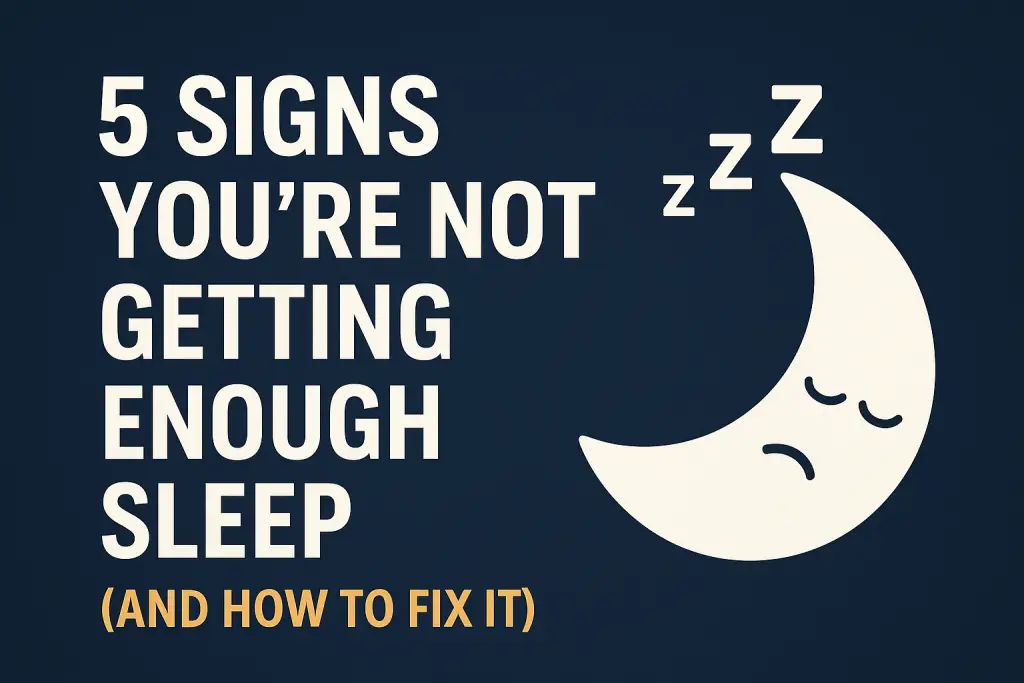5 Signs You’re Not Getting Enough Sleep (and How to Fix It)

If you’re feeling off lately—physically, mentally, or emotionally—there’s a good chance sleep is the missing piece. Most people don’t realize just how much poor sleep is dragging them down until it starts affecting everything from their workouts to their mood.
Here are 5 signs you’re not getting enough sleep… and what you can actually do about it.
1. You’re Constantly Tired, Even After “Sleeping In”
You sleep in on the weekends hoping to catch up, but still feel groggy when you wake up. That’s not just bad luck—it’s a red flag. Oversleeping to “recover” from chronic sleep debt doesn’t fix the problem.
Fix it: Set a consistent wake-up time, even on weekends. Focus on creating a realistic sleep schedule that you can stick to during the week. Your body loves rhythm.
2. Your Workouts Feel Harder Than Usual
Your strength drops, endurance tanks, and recovery takes forever. That’s not just a bad day—it’s likely your nervous system hasn’t had time to recharge. Sleep is when your body does the real work of recovery and adaptation.
Fix it: Prioritize sleep as part of your training. No amount of pre-workout or protein can replace 7–9 hours of quality sleep. Track your training performance alongside your sleep—you’ll start seeing patterns.
3. You’re Moody or Snapping at People Over Nothing
Poor sleep impacts emotional regulation. When you’re running on fumes, your patience, tolerance, and mood all take a hit. You might even feel anxious or down for no clear reason.
Fix it: Build a wind-down routine. That could be a hot shower, a cup of decaf tea, or a quick brain dump in a journal. Get your nervous system out of “go mode” before bed.
4. You’re Craving Junk and Overeating
Lack of sleep messes with your hunger hormones—ghrelin and leptin. The result? You crave sugar, salt, and carbs, and you’re less able to tell when you’re full. It’s not a willpower problem—it’s biology.
Fix it: Start by fixing your sleep schedule instead of over-restricting your food. And try not to eat a huge meal right before bed—it can disrupt deep sleep.
5. You’re Getting Sick More Often
Sleep is when your immune system does a lot of its heavy lifting. Skimping on sleep increases inflammation and lowers your defenses. If you’re catching every bug that goes around, sleep might be a factor.
Fix it: Aim for 7–9 hours of quality sleep per night. If that feels impossible, work your way up in 30-minute increments over a couple weeks. Progress beats perfection.
Final Thoughts
Sleep isn’t optional—it’s foundational. Before you add another supplement, training session, or productivity hack, fix your sleep. Your energy, mood, strength, and mental clarity will thank you.
Small changes make a big difference. Start with one thing tonight—turn off screens earlier, dim the lights, or just go to bed 15 minutes sooner.
Need help figuring out your ideal sleep window? Try our free Sleep Calculator to find your best bedtime based on your schedule.